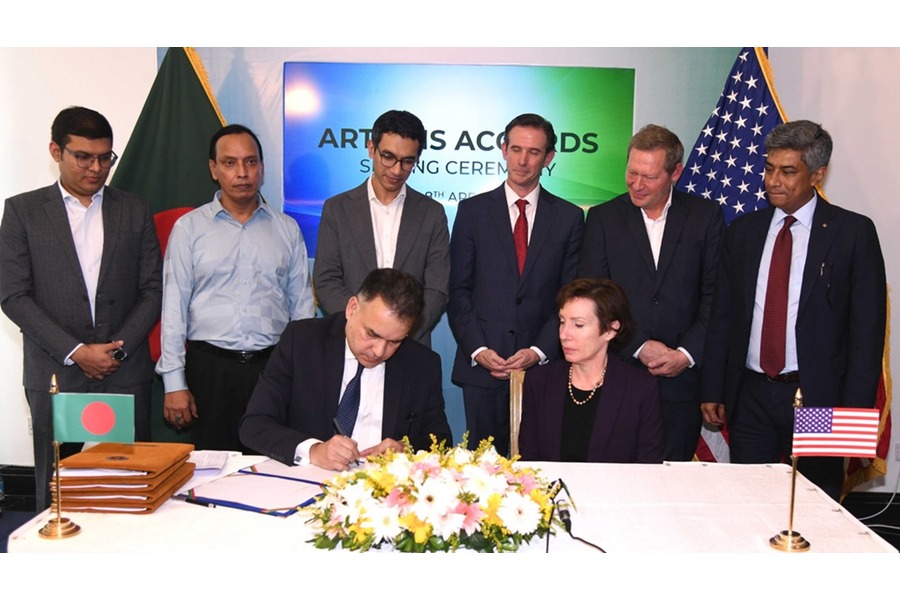

It is indeed an occasion to celebrate as Bangladesh has become the 54th nation to commit to safe and responsible exploration of space for the greater good of humanity through inking the 'Artemis Accords' with 'National Aeronautics and Space
Administration (NASA)' of the USA on the sidelines of the investment summit on April 8 in Dhaka. While signing the deal, the official representing Bangladesh did not fail to mention that the country had been following the international norms for peaceful use of space since long. After becoming part of the prestigious international space alliances, Bangladesh can now truly claim its due share of the wealth of space research and its products through collaborative ventures as well as technology transfer.
Notably, the Artemis Accords established by the NASA in 2020 are a set of non-binding agreements aimed at promoting peaceful, cooperative, and transparent exploration of outer space, particularly focusing on activities related to the Moon, Mars, and other celestial bodies. Now, the question may arise if Bangladesh can afford the luxury of rubbing shoulders with nations far advanced in science, especially space technology. Moreover, if Bangladesh, as a member of the Least Developed Countries (LDCs) and still struggling with its limited resources and a large population to feed, meets the basic requirements to enter the high-tech arena of space exploration! Interestingly, Janet Petro, acting administrator of the NASA, in her virtual message to the signing ceremony of the Artemis Accords, has herself answered the question on our behalf as to why Bangladesh should join space programme forthwith. It would be worthwhile to quote here in her own words in what high esteem she holds the youths of Bangladesh when it comes to their potential as worthy partners from Bangladesh in space exploration with other advanced nations. In fact, she was rather effusive when she said, "The young minds of Bangladesh have shown the world their passion for space exploration", as, "In four of the last six years, Bangladeshi innovators have been global champions in NASA's space apps challenge… I have no doubt we will continue to see extraordinary scientists, engineers and even future astronauts emerge from Bangladesh."
Clearly, it is again the Bangladeshi youths who wrested their country free from the clutches of autocracy through July revolution are also playing a leading role in space science. So, from the older generation's perspective, Bangladesh may still look unprepared to join the space age if not the race. Driven by such globally acclaimed potential and talent of the country's young space scientists, Bangladesh can even benefit from the latest advancements in space technology both in terms of research and its products.
In this connection, it may be recalled how Bangladesh first stepped into the arena of space science through establishing the 'Space Research and Remote Sensing Organization (SPARSO)' in 1990. Though the country is still far behind many other nations including our neighbouring India, it would be sobering to remember that all space research had a modest beginning through sending rockets in near space to study changes in the atmospheric conditions as part of the meteorological research. From that point of view, Bangladesh might still be in its infancy in space research. But once the young scientists of the new generation get the opportunity to engage themselves in space research at home in collaboration with their international partners, the day is not far off when Bangladeshi scientists including even local astronauts would be taking part in international space programmes.


 For all latest news, follow The Financial Express Google News channel.
For all latest news, follow The Financial Express Google News channel.